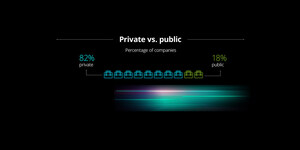NEW YORK, Oct. 23, 2019 /PRNewswire/ --
Key takeaways
- The complex role of the chief procurement officer (CPO) now faces emerging economic and political risks in every direction they turn — and they feel pressured to cut costs along the way.
- This year's survey saw a spike in responses not previously top of mind: a potential economic downturn and the "trade war." External risks are gaining the attention of CPOs, even more so than continually pressing internal risks, like digital transformation.
- Thinking digitally, CPOs are focused on analytics, while AI and blockchain — technologies driving the Fourth Industrial Revolution — are of little focus and are not being utilized at scale.
Why it matters to business leaders
Make no mistake: CPOs are facing a challenging global business landscape and reacting accordingly — yet many do not feel prepared to tackle these challenges head-on. The "Deloitte Global CPO Survey 2019" found a growing trend toward safeguarding against external risks as the current economic environment presents a number of emerging issues from every corner of the globe. From goods to services, to equipment and more, external supply markets were already complex. However, when coupled with digital transformation and expanding geopolitical risks, procurement has become more complex than ever before, and ever more important to organizations at large.
What's more, only 39% of respondents feel prepared "to a large extent" to combat and navigate these risks, while only 5% feel "completely" prepared. Faced with an unprecedented amount of uncertainty, today's CPOs are pressured to form contingency plans and enlist the help of the larger C-suite in becoming masters of complexity who can weather these risks. In fact, the CPO may be seen internally as a leading expert on uncertainty, raising the stakes for the role as it becomes increasingly strategic and higher profile to executive leadership.
Planning for an economic downturn — at home and abroad
An economic downturn was the No. 1 risk cited by survey respondents, with 46% identifying it as a top risk impacting procurement. In considering a possible downturn, the majority of respondents plan to cut costs as a means of ensuring long-term success. In fact, cutting costs remains a primary business strategy across sectors — 70% of respondents indicated they are very likely to cut costs over the next year.
Also top of mind are several geopolitical issues with the potential to wreak havoc on the global economy. Respondents cited Brexit as the top such issue, alongside weakness and/or volatility in emerging markets and the Middle East, plus spillover effects from the slowdown in China. These are considerations that are only growing in attention from CPOs — no matter where they're based, and they continue to underscore the increasingly global nature of the modern CPO role.
Safeguarding against trade uncertainty
The "trade war" was also identified as a top risk by 34% of respondents — the No. 4 risk cited, and further evidence that geopolitical concerns and global business are deeply intertwined. Rather than acting on their trade woes, procurement leaders actually are practicing patience as these issues play out in the larger political landscape. Trade disputes, for example, are not prompting CPOs to pursue a redesign of their supply chains. Instead, the majority of organizations are proactively planning for every possibility, likely making small adjustments along the way with other mitigation tactics, making sure not to over-correct.
Anticipating and capitalizing on industry trends
While macroeconomic risks loom, the second, third, and fifth risks cited by respondents reflect internally on organizational structure, talent models and digital capabilities. Thinking digital, CPOs are focused on analytics, viewing it as the technology that will have the most impact on their business moving forward, further demonstrating the desire to take a proactive and predictive stance. Meanwhile, AI and blockchain — technologies driving the Fourth Industrial Revolution — are of little focus and are not being fully utilized.
Key quotes
"In the current environment, every CPO should consider doing three things: make an honest assessment of your operational and financial risk exposure; 'amp up' proactive internal and external collaboration to be able to better identify and mitigate emerging risks; and develop and execute a playbook to navigate through both internal and external risks — ASAP."
- Brian Umbenhauer, principal, Deloitte Consulting
LLP and global service offering leader for sourcing
and procurement
"CPOs have more technology tools at their disposal than ever before — they just need to make sure they use these tools properly and plan for the risks associated with them. Still, the potential of these technologies to cut costs and weather uncertainty is tremendous. My best advice? Go digital."
- Lee Barter, partner, Deloitte Canada, Americas
sourcing and procurement leader
To see additional results from Deloitte's Global CPO Survey click here.
About the Survey
Since 2011, the Deloitte Global Chief Procurement Officer (CPO) survey has been providing exclusive insights into the key challenges and opportunities shaping the course of procurement, serving as a global benchmark of sentiment about the function. These insights have, over the years, helped members of the C-suite, procurement leaders, business partners, suppliers, and supporting technology providers in furthering their ambition, strategies, and performance.
The 2019 survey was conducted in association with procurement market intelligence firm Spend Matters and Odgers Berndston. In this year's survey, 481 procurement leaders from 35 countries took part, representing organizations with a combined annual turnover of US$5 trillion.
About Deloitte
Deloitte provides industry-leading audit, consulting, tax and advisory services to many of the world's most admired brands, including nearly 90% of the Fortune 500® and more than 5,000 private and middle market companies. Our people work across the industry sectors that drive and shape today's marketplace — delivering measurable and lasting results that help reinforce public trust in our capital markets, inspire clients to see challenges as opportunities to transform and thrive, and help lead the way toward a stronger economy and a healthy society. Deloitte is proud to be part of the largest global professional services network serving our clients in the markets that are most important to them. Our network of member firms spans more than 150 countries and territories. Learn how Deloitte's more than 312,000 people worldwide make an impact that matters at www.deloitte.com.
Deloitte refers to one or more of Deloitte Touche Tohmatsu Limited, a UK private company limited by guarantee ("DTTL"), its network of member firms, and their related entities. DTTL and each of its member firms are legally separate and independent entities. DTTL (also referred to as "Deloitte Global") does not provide services to clients. In the United States, Deloitte refers to one or more of the US member firms of DTTL, their related entities that operate using the "Deloitte" name in the United States and their respective affiliates. Certain services may not be available to attest clients under the rules and regulations of public accounting. Please see www.deloitte.com/about to learn more about our global network of member firms.
SOURCE Deloitte

Related Links
WANT YOUR COMPANY'S NEWS FEATURED ON PRNEWSWIRE.COM?
Newsrooms &
Influencers
Digital Media
Outlets
Journalists
Opted In






Share this article